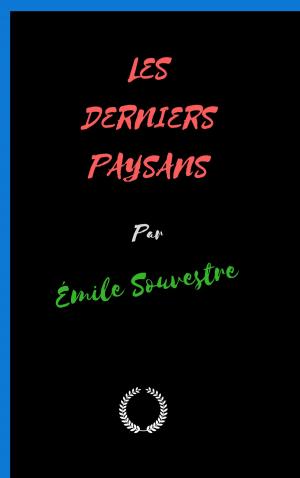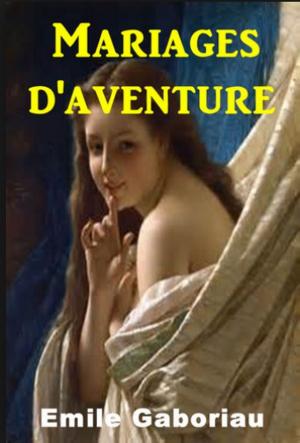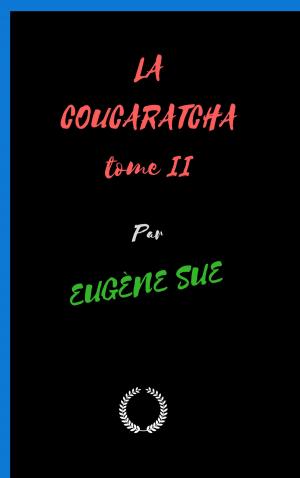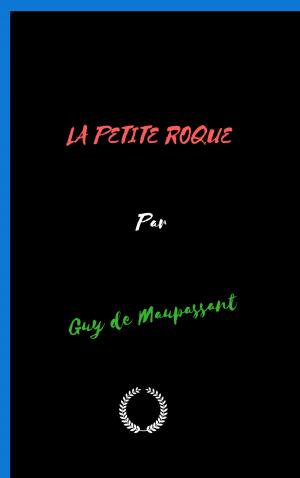| Author: | Charles Paul de Kock | ISBN: | 1230002419824 |
| Publisher: | Jwarlal | Publication: | July 10, 2018 |
| Imprint: | Language: | English |
| Author: | Charles Paul de Kock |
| ISBN: | 1230002419824 |
| Publisher: | Jwarlal |
| Publication: | July 10, 2018 |
| Imprint: | |
| Language: | English |
UPON a certain evening in the month of December, of the year one thousand six hundred and thirty-two, a man walked at a rapid pace down the Rue Saint-Honoré and directed his steps towards the Rue Bourdonnais.
The individual appeared to be forty years old or thereabouts; he was tall as to his figure and sufficiently good-looking as to his face; the expression of the latter, however, was rather austere and at times even melancholy; and in his black eyes might sometimes be noted an ironical light, which belied the suspicion of a smile.
This ungenial personage, on the occasion of which we are writing, was wrapped, one might almost say disguised, and he looked like one who would lend his personality to disguise; he was wrapped, then, in a long brown cloak which only came down just below his knees, and he wore, drawn low down over his eyes, a broad-brimmed hat, which, contrary to the fashion of the day, was ungarnished by a single feather, but which effectually protected his face from the rain which was now beginning to fall very heavily.
The Paris of that time was very different from the Paris of today. The condition of the beautiful capital was then deplorable; many of the streets were unpaved, many of them were only partly paved; heaps of rubbish and filth accumulated here and there before the houses, obstructing the course of the water and stopping the openings of the drains. These waters being without outlet, overflowed on all sides, forming puddles and filthy holes which exhaled miasmatic and fœtid odors. Then one might have alluded with truth to—
Paris, city of noise, of mud and of smoke.
The streets were unlighted. People carried lanterns, it is true; but everybody did not have these, nor were lanterns any defence against the robbers who existed in very large numbers, committing a thousand excesses, a thousand disorders, even in broad daylight, being only too well authorized in crime by the example of the pages and lackeys whose habit it was to amuse themselves each night by insulting the passers-by, abducting the girls, mocking at the watch, beating the sergeants, breaking in the doors of shops, and annoying the peace of the inhabitants in a multiplicity of ways, excesses against which parliament had in vain promulgated statutes, which were incessantly renewed, and just as incessantly violated with impunity.
The stealing of purses, and even of cloaks, was then a thing so common that the witnesses of the robbery contented themselves with laughing at the expense of the victim, without ever running after the thief. Murders were committed in broad daylight on the squares and on the walks, the criminals insulting their victims as they departed.
There were two kinds of thieves,—cut-purses and tire-laines. The first nimbly cut the strings of the purse, which it was then the habit to carry hung at the belt; the second, approaching from behind, rudely tore the passer's cloak from his shoulders.
Vainly from time to time they executed some of these criminals. These examples seemed to redouble the audacity of the vagabonds, the insolence of the pages and lackeys. Justice waxed feeble, while custom allowed each one to execute it for himself. Duels were nearly as common as robberies; it was considered a great honor to have the power to boast of having sent many people into the other world. Indubitably this was not the golden age, nor the good old times so vaunted by some poets, so regretted by those gloomy minds which admire only hoops and farthingales.
UPON a certain evening in the month of December, of the year one thousand six hundred and thirty-two, a man walked at a rapid pace down the Rue Saint-Honoré and directed his steps towards the Rue Bourdonnais.
The individual appeared to be forty years old or thereabouts; he was tall as to his figure and sufficiently good-looking as to his face; the expression of the latter, however, was rather austere and at times even melancholy; and in his black eyes might sometimes be noted an ironical light, which belied the suspicion of a smile.
This ungenial personage, on the occasion of which we are writing, was wrapped, one might almost say disguised, and he looked like one who would lend his personality to disguise; he was wrapped, then, in a long brown cloak which only came down just below his knees, and he wore, drawn low down over his eyes, a broad-brimmed hat, which, contrary to the fashion of the day, was ungarnished by a single feather, but which effectually protected his face from the rain which was now beginning to fall very heavily.
The Paris of that time was very different from the Paris of today. The condition of the beautiful capital was then deplorable; many of the streets were unpaved, many of them were only partly paved; heaps of rubbish and filth accumulated here and there before the houses, obstructing the course of the water and stopping the openings of the drains. These waters being without outlet, overflowed on all sides, forming puddles and filthy holes which exhaled miasmatic and fœtid odors. Then one might have alluded with truth to—
Paris, city of noise, of mud and of smoke.
The streets were unlighted. People carried lanterns, it is true; but everybody did not have these, nor were lanterns any defence against the robbers who existed in very large numbers, committing a thousand excesses, a thousand disorders, even in broad daylight, being only too well authorized in crime by the example of the pages and lackeys whose habit it was to amuse themselves each night by insulting the passers-by, abducting the girls, mocking at the watch, beating the sergeants, breaking in the doors of shops, and annoying the peace of the inhabitants in a multiplicity of ways, excesses against which parliament had in vain promulgated statutes, which were incessantly renewed, and just as incessantly violated with impunity.
The stealing of purses, and even of cloaks, was then a thing so common that the witnesses of the robbery contented themselves with laughing at the expense of the victim, without ever running after the thief. Murders were committed in broad daylight on the squares and on the walks, the criminals insulting their victims as they departed.
There were two kinds of thieves,—cut-purses and tire-laines. The first nimbly cut the strings of the purse, which it was then the habit to carry hung at the belt; the second, approaching from behind, rudely tore the passer's cloak from his shoulders.
Vainly from time to time they executed some of these criminals. These examples seemed to redouble the audacity of the vagabonds, the insolence of the pages and lackeys. Justice waxed feeble, while custom allowed each one to execute it for himself. Duels were nearly as common as robberies; it was considered a great honor to have the power to boast of having sent many people into the other world. Indubitably this was not the golden age, nor the good old times so vaunted by some poets, so regretted by those gloomy minds which admire only hoops and farthingales.















